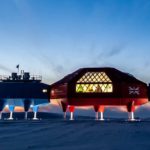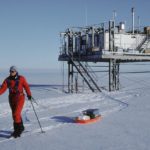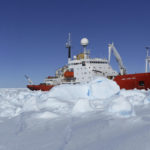SONATA
Southern OceaN optimal Approach To Assess the carbon state, variability and climatic drivers (SONATA)
- Start date
- 1 July, 2017
- End date
- 30 June, 2021
The Southern Ocean is one of the most important and poorly understood components of the global carbon cycle that profoundly shapes Earth’s climate. It is the primary hot spot for the oceanic sink of anthropogenic carbon dioxide (CO2), having captured half of all human-related carbon that has entered the ocean to date.
As a major knowledge gap and a central player in global carbon and climate dynamics, the Southern Ocean carbon system is regularly singled out as the Achilles’ heel of the Earth system models upon which humankind relies to understand contemporary climate change, predict its future evolution, and define international climate policy.
SONATA is a major NERC-funded project which will design and implement an optimal approach to assess the state, variability and climatic drivers of the contemporary Southern Ocean carbon sink. This overriding objective will be achieved through a combination of atmospheric and marine field measurements as well as numerical modelling. A further important aspect of SONATA is to establish a legacy strategy to track the Southern Ocean carbon sink during future decades using field and modelling approaches. SONATA is led by Prof Corinne Le Quéré, University of East Anglia.
BAS’s role within SONATA is to make continuous high precision/accuracy measurements of atmospheric carbon dioxide from 3 remote sites, the Halley Clean Air Sector Laboratory in coastal Antarctica, the Falkland Islands, and on-board the RRS James Clark Ross. The data will be used for inverse modelling assessments of the Southern Ocean carbon sink within SONATA.


